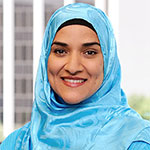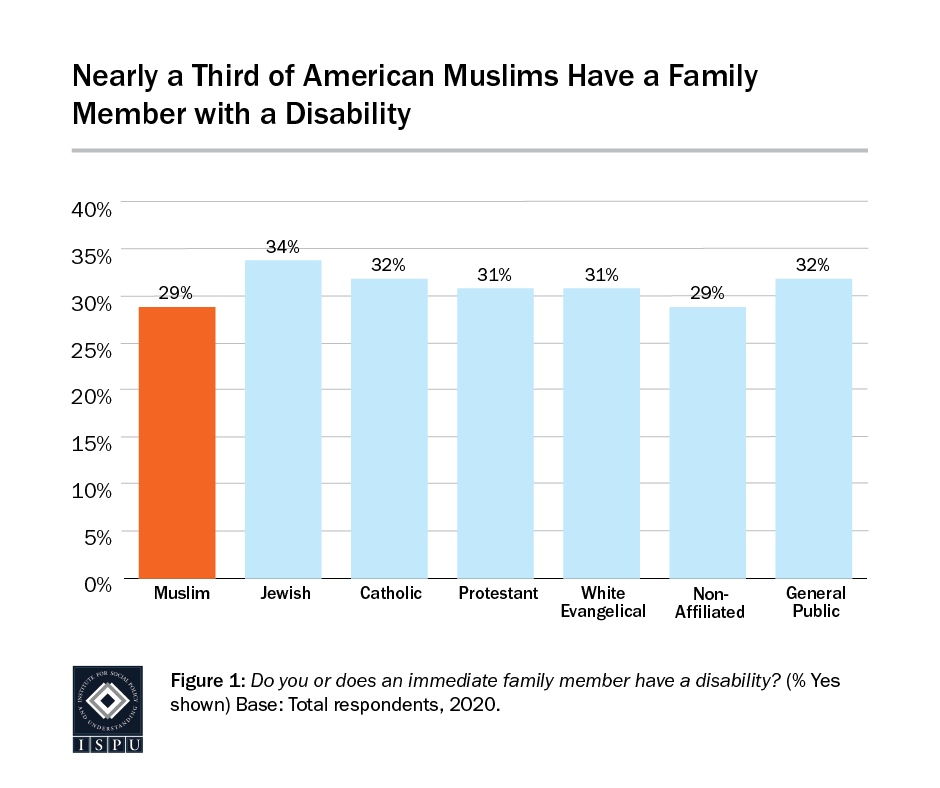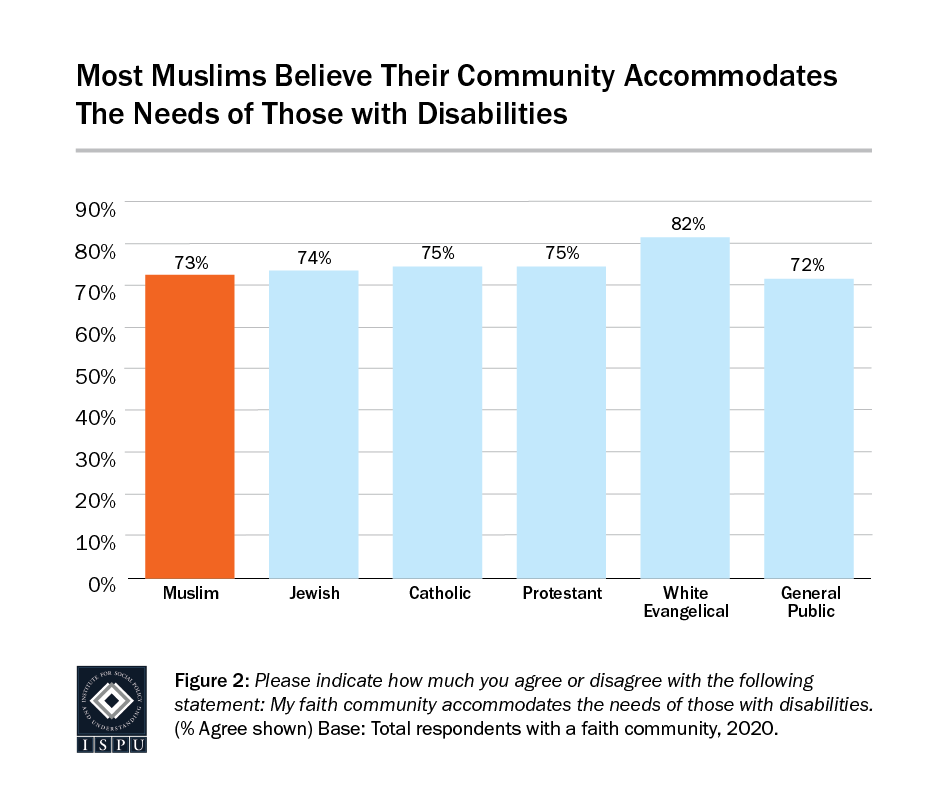
One in Three Muslims Has An Immediate Family Member with a Disability
October 28, 2021 | BY DALIA MOGAHED
An estimated 61 million adults in the United States live with a disability, and roughly one in four of adults in the US have some type of disability. Thanks to the Americans with Disabilities Act, American law prohibits “discrimination against people with disabilities in several areas, including employment, transportation, public accommodations, communications and access to state and local governments’ programs and services.”
And, though the law goes a long way to protect the rights of people with disabilities, the lived realities of families with members with disabilities are rarely centered when we discuss the American Muslim community.
To address this gap, ISPU included the topic on its American Muslim Poll 2020, a nationally representative poll of Americans of different faiths, including Muslims, as well as Americans of no faith. This research is just a first step in addressing the needs of Muslims with disabilities.
Community leaders cannot afford to ignore the needs of this segment of any community and should start by listening to the impacted members to learn how faith spaces can better meet their needs.
DOWNLOADS
MORE ANALYSES
Substance Abuse and Addiction in the Muslim Community
The (Dis)parity of White Muslim Political Attitudes
American Muslim Policy Priorities
Five Surprising Facts about Divorce in American Muslim Communities
Not Immune: Some Muslims in America Internalize Islamophobia
Unwanted Sexual Advances from Faith Leaders Are Equally Prevalent Across Faith Groups
Muslims Profess More Private Religious Devotion, Less Public Religious Assertiveness

One in Three Muslims Has An Immediate Family Member with a Disability
October 28, 2021 | BY DALIA MOGAHED
An estimated 61 million adults in the United States live with a disability, and roughly one in four of adults in the US have some type of disability. Thanks to the Americans with Disabilities Act, American law prohibits “discrimination against people with disabilities in several areas, including employment, transportation, public accommodations, communications and access to state and local governments’ programs and services.”
And, though the law goes a long way to protect the rights of people with disabilities, the lived realities of families with members with disabilities are rarely centered when we discuss the American Muslim community.
To address this gap, ISPU included the topic on its American Muslim Poll 2020, a nationally representative poll of Americans of different faiths, including Muslims, as well as Americans of no faith. This research is just a first step in addressing the needs of Muslims with disabilities.
Community leaders cannot afford to ignore the needs of this segment of any community and should start by listening to the impacted members to learn how faith spaces can better meet their needs.
One in Three Americans Has a Family Member with a Disability
Roughly one in three of every community studied has a member of their immediate family with a disability, and this includes Muslims.
If 29% of Muslim households include a member that has a disability, this segment makes up a larger percentage of American Muslims than Muslims who identify as any of the following racial or ethnic groups: Arab (18%), Asian (23%), or white (23%), meaning this segment of the Muslim community cannot be ignored.
Most Americans Say Their Faith Community Accommodates The Needs of Those with Disabilities
Roughly three out of four people in all communities, including Muslims, say that their faith community accommodates the needs of those with disabilities. We might expect those with lived experiences of having a family member with a disability or having one themselves to have a different perspective on acceptable accommodations compared to those not personally familiar with this experience. However, we found no difference between these groups.
Further research is needed to discover how faith communities can better meet the needs of people with disabilities, as well as the lived experience of Muslims with disabilities in Muslim spaces as well in broader society. Organizations like MUHSEN, who “aims for both better communities and better daily lives for all adults and children who are living with disabilities,” are key resources for communities and must be strongly supported.

Dalia Mogahed is the Director of Research at the Institute for Social Policy and Understanding, where she leads the organization’s pioneering research and thought leadership programs on American Muslims. Learn more about Dalia→



